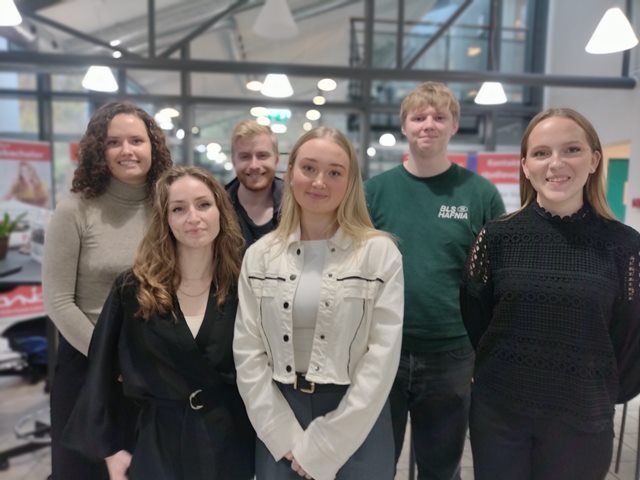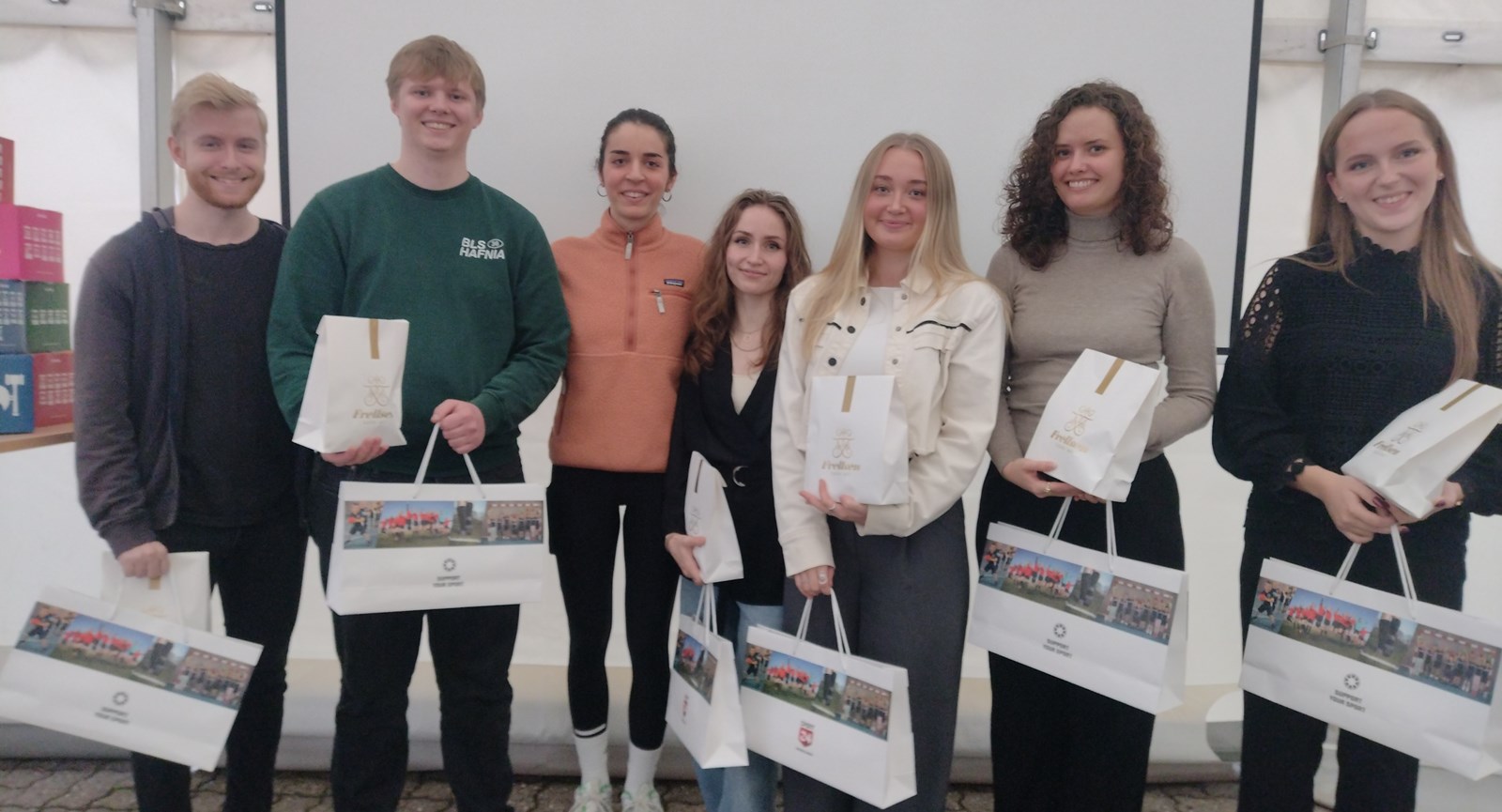The students were divided into groups across study programmes and geography, and they were tasked with working on one of three different problem statements. As inspiration for the work, Green Business, Lidl, and Dansk Erhverv were all invited to give hybrid presentations on how they work with sustainability in their daily operations.
Obvious to collaborate with Dania’s students
It was Andrea Bou-Zeid, ESG consultant at Sport24, who presented the students with the three problem statements, while also sharing a bit about Sport24’s current work with sustainability and the green transition:
We at Sport24 are just at the beginning of our sustainability journey, and we know that it is a theme that will become more significant in the future. That is why it is completely natural for us to collaborate with Dania’s students, as they are a generation that already focuses on sustainability. So, we are excited about their input.
Andrea Bou-Zeid, Sport24
"There are many areas to address when talking about sustainability. And our goal with this collaboration is to get ideas about where we can launch new initiatives and be inspired regarding which areas we might set goals for in the future. Not all of the ideas the students present to us will be implemented. But the most important thing is that we can gain new inspiration and new perspectives on the way we work, and there will certainly also be some of the ideas that we will continue to develop," says Andrea Bou-Zeid, ESG consultant at Sport24.

Hybrid collaboration and physical finale
For the groups of students, the challenge during Sustainable Week was not ‘just’ to solve Sport24’s sustainability challenges. They had also been put together in groups across study programmes and geographical locations, meaning that throughout the week they had to collaborate remotely with one another.
On Monday of week 45, the students gathered physically in Silkeborg. But on Tuesday, Wednesday, and Thursday they had to collaborate in a hybrid format, and on Thursday they pitched their ideas, also hybrid, to the lecturers. The best ideas were selected for the final on Friday, where everyone met in person in Silkeborg. Here, the finalists presented their ideas in front of the other students and the panel of judges before a winner was announced.
Bonus for buying clothes with a low CO2 footprint
Many concrete and creative ideas were presented in the final. But the winning group distinguished themselves in particular by proposing a bonus program, where you would not earn points based on how much you buy, but instead on how sustainable the products you purchase actually are:
'First of all, it has been great to work with a real-life case. And we have, among other things, brainstormed a lot on different bonus programs. Because instead of rewarding customers for spending a lot of money, we would rather see customers rewarded for buying products with the lowest CO2 footprint,' the winning group explains.
But the bonus program was far from the group’s only good idea. They also suggested that Sport24 establish a type of marketplace in their stores, where customers could return clothing they had bought in the store but no longer use, so it could be resold as second-hand:
'We have tried both to think big and at the same time be more concrete with our solutions. That’s why we also propose that Sport24, moving forward, produces their price tags in recyclable cardboard and uses string instead of plastic strips. It doesn’t take much if they want to make those changes,' the winning group concludes.
The winning group was praised both for presenting some truly good ideas and at the same time having a very clear structure in their presentation, making it easy for the audience to understand how their ideas could be implemented.
Facts about Sustainable Week
The purpose of Sustainable Week is to create a visible link between theory and practice for the students. Here, they are given the tools to qualify solutions by incorporating relevant theory and methods, and they learn to collaborate around a highly relevant theme for all companies, namely sustainability.
Sustainability is one of Dania’s strategic focus areas, and it is also part of the strategic framework agreement with the Ministry of Higher Education and Science for 2022–2025. In this way, Business Academy Dania seeks to support the government’s 2030 goal regarding sustainability and the green transition, thereby addressing the societal challenges we face both in Denmark and the rest of the world.

